Umaru Musa YarAdua: The 13th President of Nigeria
Umaru Musa YarAdua (16th August 1951 – 5th May 2010) was a prominent Nigerian politician and distinguished Abusite who was the President of Nigeria from 2007 to 2010. He previously served as the Governor of Katsina from 1999 to 2007.
YarAdua was born on the 16th of August 1951 into a titled Fulani family in Katsina. His father, Musa Yar’Adua, was a Minister for Lagos in the First Republic and held the chieftaincy title of Matawalle (or custodian of the royal treasury) of the Katsina Emirate, a title which Yar’Adua inherited.
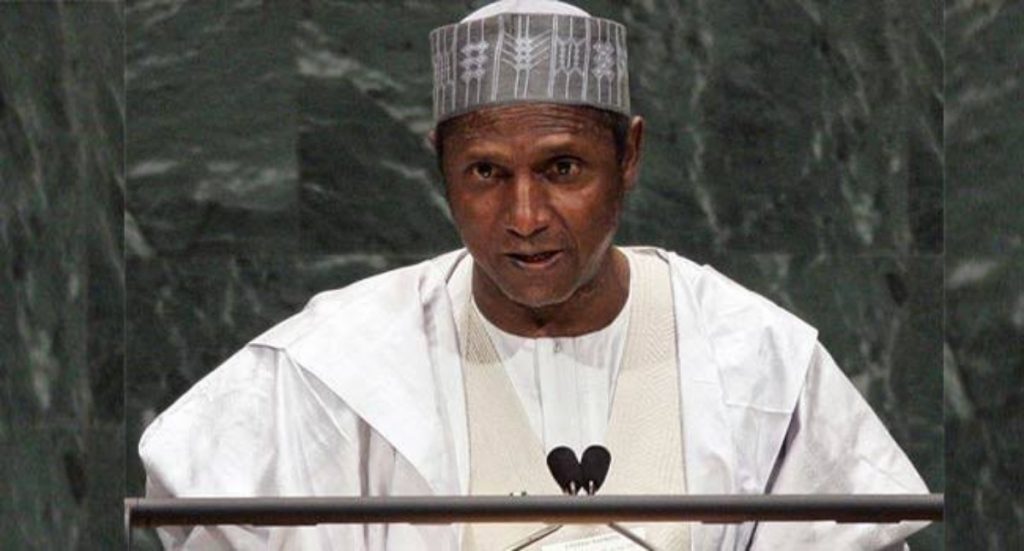
The young Umaru started his education at Rafukka Primary School in 1958 and moved to Dutsinma Boarding Primary School in 1962 before proceeding to Government College at Keffi where he studied from 1965 until 1969. He moved to Barewa College where he received a Higher School Certificate In 1971.
READ ALSO: Turai YarAdu’a: First Lady of Nigeria [2007-2010]
He attended the prestigious Ahmadu Bello University in Zaria from 1972 to 1975, where he obtained a bachelor’s degree in Chemistry Education, and then returned in 1978 to pursue a master’s degree in Analytical Chemistry.
The late Umaru Musa YarAdua began his working career at Holy Child College in Lagos (1975–76). He later served as a lecturer at the College of Arts, Science, and Technology in Zaria, Kaduna State, between 1976 and 1979.
He was in the teaching profession as a lecturer until 1983 when he joined Sambo Farms Ltd in Funtua, Katsina State, as its pioneer General Manager between serving in that capacity until 1989.
He served as a Board Member of Katsina State Farmers’ Supply Company between 1984 and 1985, Member of the Governing Council of Katsina College of Arts, Science and Technology, and Katsina Polytechnic between 1978 and 1983, Board Chairman of Katsina State Investment and Property Development Company between 1994 and 1996.
He also served as a director of many companies, including Habib Nigeria Bank Ltd, 1995–99; Lodigiani Nigeria Ltd, 1987–99, Hamada Holdings, 1983–99; and Madara Ltd, Vom, Jos, 1987–99. He was Chairman of Nation House Press Ltd, Kaduna, from 1995 to 1999.
During the Second Republic (1979–83), Yar’Adua was a member of the leftist People’s Redemption Party, while his father was briefly the National Vice Chairman of the National Party of Nigeria.
During the transition programme of General Ibrahim Babangida to the Third Republic, Yar’Adua was one of the foundation members of the Peoples Front of Nigeria, a political association under the leadership of his elder brother, the late Major-General Shehu Musa Yar’Adua. Members include prominent politicians such as Atiku Abubakar, Baba Gana Kingibe, Bola Tinubu, Sabo Bakin Zuwo, Wada Abubakar, Abdullahi Aliyu Sumaila, and Rabiu Musa Kwankwaso.
That association later fused to form the Social Democratic Party. Umaru Musa YarAdua was a member of the 1988 Constituent Assembly. He was a member of the party’s National Caucus and the SDP State Secretary in Katsina and contested the 1991 Governorship election, but lost to Saidu Barda, the candidate of the National Republican Convention and an ally of Babangida.
Yar’Adua contested again in 1999 and won the Katsina state governorship. He was the first governor to publicly declare his assets. Yar’Adua’s administration saw various developments in the state. Education was prioritized and several schools were built in local areas.
Yar’Adua also delivered on his promise of running an efficient public administration, with corruption significantly hampered. In 2003, he was re-elected for a second term in office serving until 2007 when he handed over to his successor Ibrahim Shema.
In December 2006, Umaru Musa YarAdua was chosen as the presidential candidate of the ruling PDP for the April 2007 election, receiving 3,024 votes from party delegates, his closest rival, Rochas Okorocha, received 372 votes.
Shortly after winning the nomination, Yar’Adua chose Goodluck Jonathan, governor of Bayelsa State, as his running mate. He was one of few serving governors with a spotless record, devoid of any suspicions or charges of corruption.
In the presidential election, held on 21 April 2007, Yar’Adua won with 70% of the vote (24.6 million votes) according to official results released on 23 April. After the election, Yar’Adua proposed a government of national unity. In late June 2007, two opposition parties, the ANPP and the Progressive Peoples Alliance (PPA), agreed to join Yar’Adua’s government.
Yar’Adua’s new cabinet was sworn in on 26 July 2007. It was made up of 39 ministers, including two for the ANPP.
On 28 June 2007, Umaru Musa YarAdua publicly declared his assets (becoming the first Nigerian president to do so), according to which he had ₦856,452,892 (US$5.8 million) in assets, ₦19 million ($0.1 million) of which belonged to his wife. He also had ₦88,793,269.77 ($0.5 million) in liabilities.
This disclosure, which fulfilled a pre-election promise he made, was intended to set an example for other Nigerian politicians and discourage corruption.
In August 2007, the administration unveiled a seven-point agenda to be the focal point of the administration’s solution to developmental challenges and stated goal of elevating Nigeria to be among the twenty largest economies in the world by 2020.
His key priorities include;
- Critical infrastructural development in power, energy, and transportation
- Focus on development issues in the Niger Delta. The government created a new ministry for Niger Delta affairs
- Wealth creation through diversification of the economy and source of government revenue. A movement away from a fossil fuel-dependent economy to a diversified economy.
- Human capital development
- Review of land tenure regulations towards a reform-oriented goal
- Security
- Food security
Yaradua established a presidential electoral reform committee to look into the legal factors, social and political institutions, and security issues that affect the quality and credibility of elections in the country and also, to make recommendations on improving the credibility of elections.
President Yar’Adua left Nigeria on 23 November 2009, for pericarditis treatment at a clinic in Saudi Arabia. On 24 February 2010, he returned to Abuja and died on the 5th of May at the Aso Rock Presidential Villa. He was buried under Islamic rites on 6th May in his hometown in Katsina.
Alhaji Umaru Musa YarAdua married Turai Umaru Yar’Adua in 1975; they had seven children (five daughters and two sons) and several grandchildren. Their daughter Zainab is married to the former Kebbi State governor Usman Saidu Nasamu Dakingari.
Another one, Nafisa is married to Isa Yuguda the former Governor of Bauchi State; and Maryam is married to Ibrahim Shema the former Governor of Katsina State. Yar’Adua was married to Hauwa Umar Radda from 1992 to 1997 and had two children.
7 Notable Legacies Of Alhaji Umaru Musa YarAdua
#1. Reduction of fuel pump price: President Umaru Musa YarAdua is the first Nigerian leader to carry out the downward reverse of a hike in fuel pump price. As soon as he was inaugurated on May 29, 2007, one of his first actions was to reduce fuel price from N75 to N65. This act was widely praised by Nigerians.
#2.Niger Delta Amnesty Programme: The distinguished Abusite initiated the Niger-Delta Amnesty Programme which saw hundreds of youths in the oil-rich Niger Delta empowered. This was contrary to the popular notion that he would clamp down on the restive youths who were blowing oil installations for their grievances. The program was well-received and doused tensions in the region, thereby shoring up oil production with many of the ex-agitators rehabilitated.
#3. Abuja-Kaduna rail route: Though he never lived to see its completion, President Umaru Musa YarAdua initiated the Abuja-Kaduna rail route. Thankfully, President Muhammadu Buhari went on to commission the project in July 2016.
#4. Initiated a New Minimum wage: Workers would remember the late President for initiating the move that led to the N18,000 wage on February 22, 2011, when the Senate approved the new wage. It was Yar’Adua who inaugurated the Presidential Committee on National Minimum Wage headed by Chief Justice Alfa Moddibo through the then Secretary to the Government of the Federation, Alhaji Mahmud Yayale Ahmed. The new wage was approved by his successor President Goodluck Jonathan following the recommendations of the committee.
#5. Dredging of River Niger: After 40 years, Umaru Musa YarAdua recommended the dredging of the River Niger, which he couldn’t sadly see-through until his demise.
#6. Declaration of Assets: He had the honour of being the first Nigerian leader to declare his assets. He declared he had ₦856,452,892 (US$5.8 million) in assets, ₦19 million ($0.1 million) of which belonged to his wife. He also had ₦88,793,269.77 ($0.5 million) in liabilities. His plan, clearly, was to set a good example for public office holders and discourage corruption.
7. Release of Lagos councils’ funds: For almost four years, former President Olusegun Obasanjo refused to release federal allocations to Lagos state, claiming the creation of 37 Local Council Development Authority (LCDAs) by former Governor Bola Tinubu was a misnomer. But Yar’Adua, within months of assumption of power, reversed the widely criticized presidential order and released all the withheld allocations, running into billions, to Lagos.
For Advert Placement, Sponsorship, support, Article submission, suggestion, etc, Contact us: info@theabusites.com, +2349015751816 (WhatsApp)

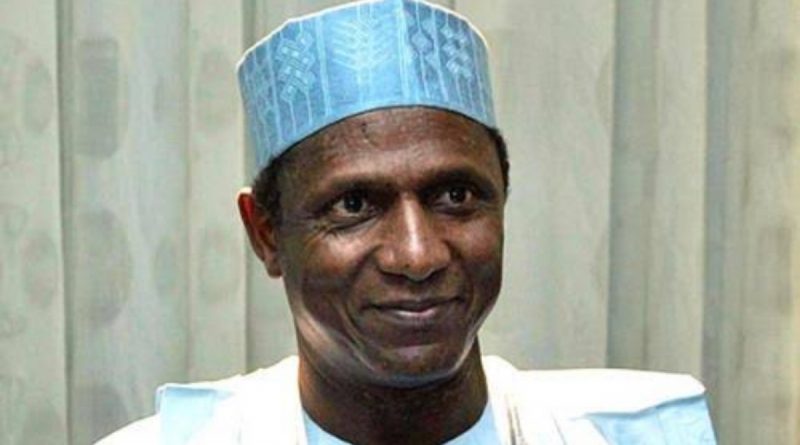


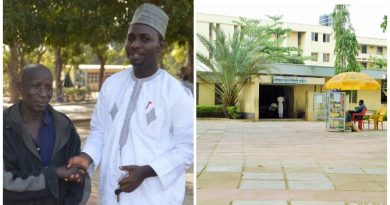
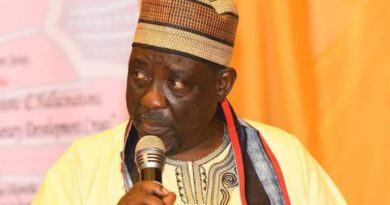
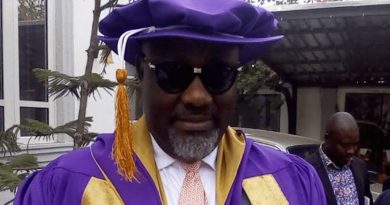

![Sheikh Muhammad Auwal Adam Albaniy Zaria [1960-2014]: The world-class scholar 9 Sheikh Muhammad Auwal Adam Albaniy Zaria [1960-2014]: The world-class scholar 7](https://www.theabusites.com/wp-content/uploads/2020/05/Sheikh-Muhammad-Auwal-Adam-Albaniy-Zaria-130x90.jpg)